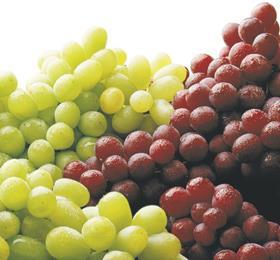
Australian importers fear Californian table grape supplies could be disrupted this winter, due to difficulties in negotiating a viable protocol to combat spotted-wing drosophila (SWD), a fruit fly with the potential to devastate crops.
In March, Australia suspended imports of cherries, table grapes and strawberries from the US, following the detection of SWD.
Imports of strawberries and table grapes have since resumed, albeit under strict conditions involving fumigating the fruit with methyl bromide, a treatment that can have a marked effect on fruit quality and shelf life.
Now, with the table grape campaign set to begin, the US has proposed a cold treatment protocol on grapes to be shipped to Australia, but Biosecurity Australia (BA) has not been able to verify the efficiency of such treatment, and will not permit imports until it does.
'As sufficient efficacy data has not yet been provided, Australia has confirmed that it is not able to accept this as a treatment option. No imports will be allowed until effective import measures have been agreed,' read a BA briefing dated June 2010.
For the past two years, Californian table grape exports to Australia have enjoyed remarkable growth, since the need to treat fruit with methyl bromide was lifted. This allowed exporters to ramp up seafreight shipments, and if methyl bromide protocols were reintroduced, the white seedless grapes so popular with Australian consumers would need to be aifreighted.
According to Neil Barker, of importer BGP International, there is a very real chance there could be no US grape shipments to Australia this year.
'The unfortunate thing is that I believe the Australian Quarantine Inspection Service (AQIS) will tend to demand a higher level of security than is necessary, and they won't accept the unproven treatment being proposed,' Mr Barker told Fruitnet.com.
He added that, were a treatment protocol put in place, it would lead to a shorter shelf life with exporters then having to airfreight produce, meaning even if fruit could be shipped, the prohibitive costs would make supply thin on the ground.
'I have a feeling that we're not going to see US grapes here this year, it's in the back of my mind. If we do see them, the treatment protocol will severely limit them anyway,' he said.
'It's a capacity restraint, a cost restraint and a quality constraint.'
Industry sources told Fruitnet.com that California Table Grape Commission officials were in Australia to try and find an end to the impasse.



